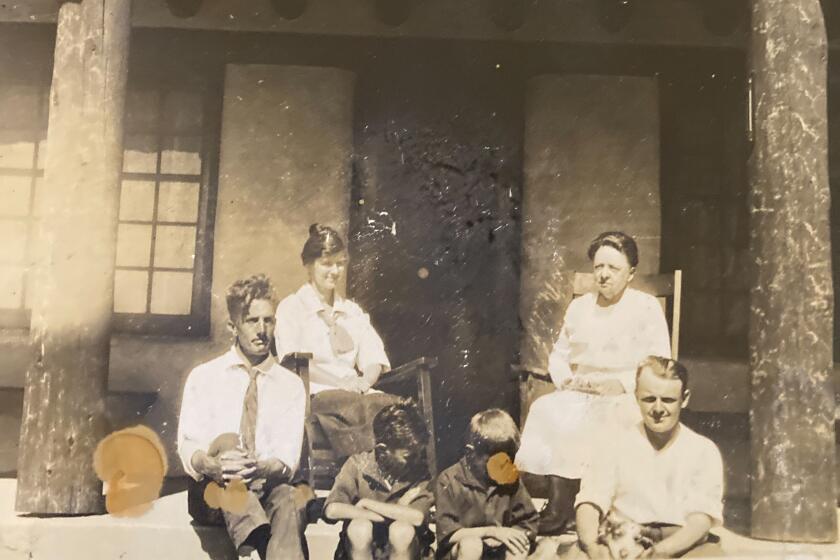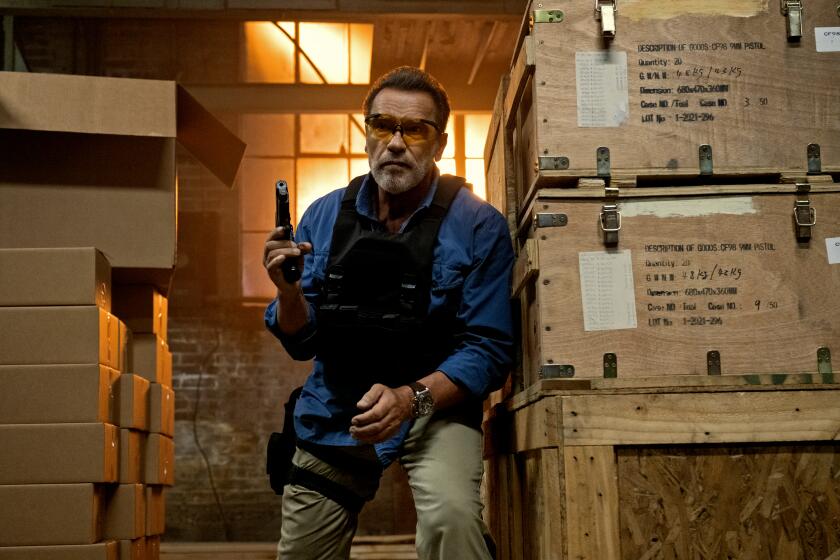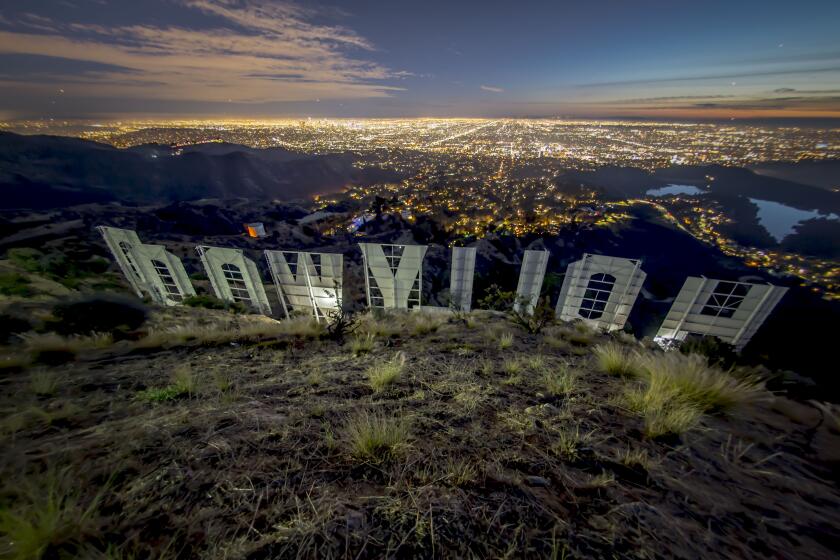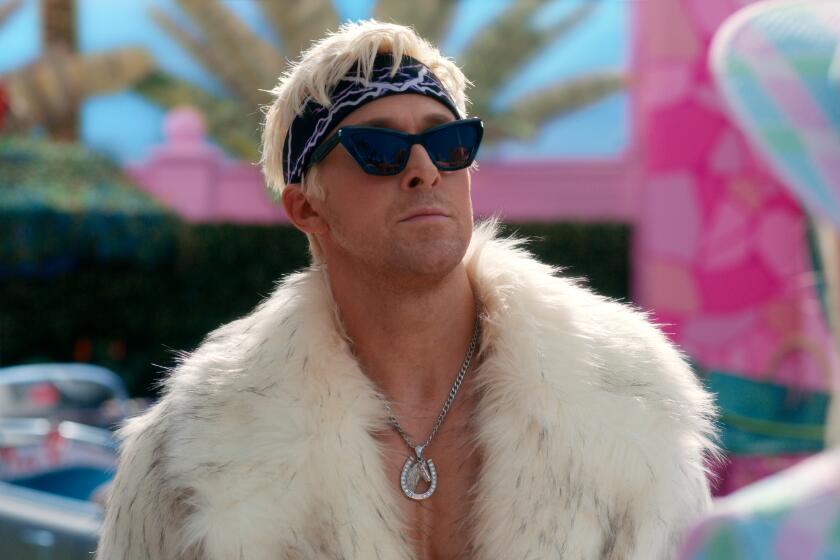Opinion: How Parkinson’s disease made me lose my taste for movie masterpieces
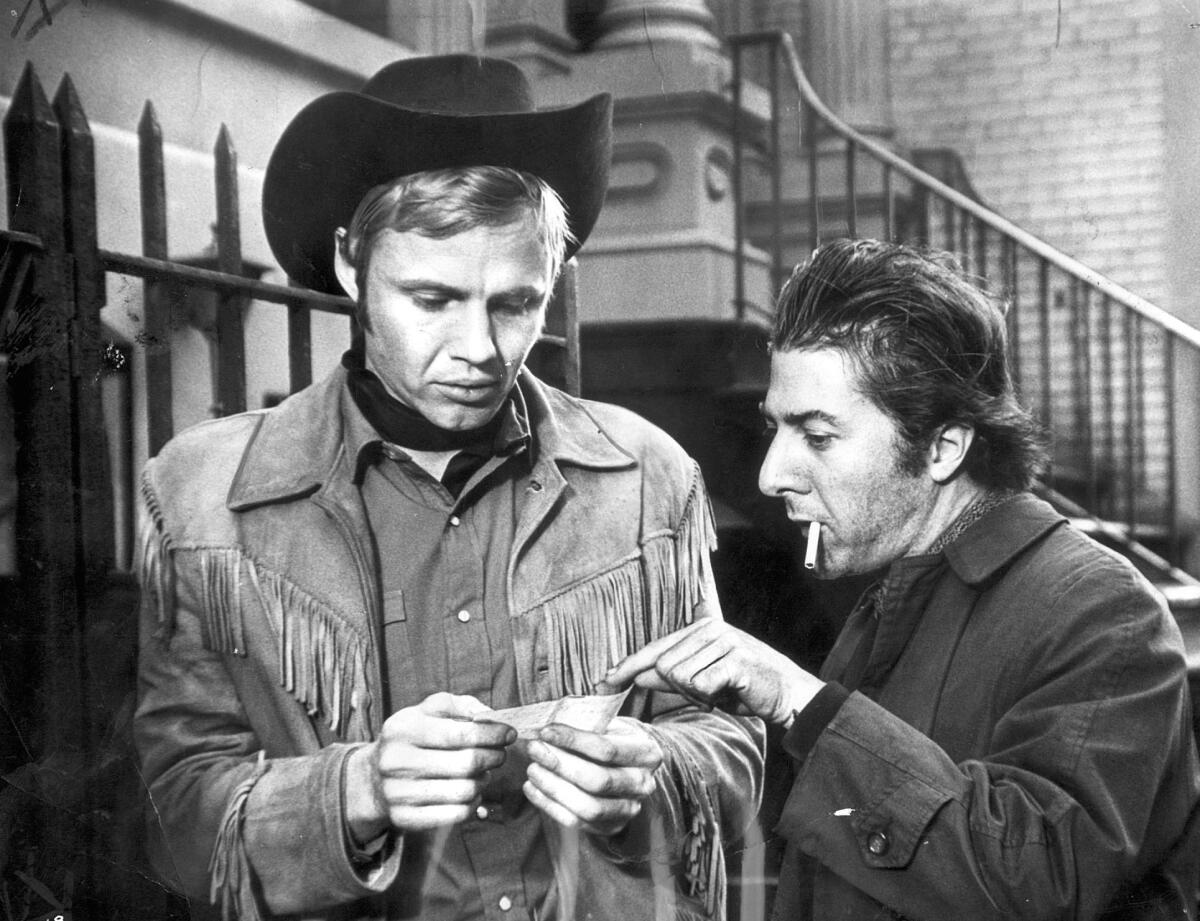
- Share via
I’m a film instructor and former critic who lists Martin Scorsese’s “Raging Bull” and “Goodfellas” among his all-time favorite movies, so you’d think I’d have tickets for the director’s forthcoming “Killers of the Flower Moon.” But, thanks to Parkinson’s disease, I can no longer tolerate edgy R-rated films.
The disease, as it progresses and limits mobility, can also cause anxiety, which can be triggered by movies. Many of the films that I once lauded as transformative and important, ones that confront and pummel viewers, now make me feel worse than uncomfortable.
These include heavy dramas such as “The Piano” and “Nomadland” and crime thrillers such as “Reservoir Dogs” and “No Country for Old Men.” So the new me will be giving this new Scorsese a wide berth.
My father’s family farmed on the Los Alamos plateau, before the land was seized to develop the first atomic bomb. Their lives there were among the many secrets they wrapped in a shroud of silence.
Ironically, when I wasn’t looking, I morphed into the reconditioned Alex in “A Clockwork Orange” after he undergoes aversion therapy. Unlike Alex, I don’t throw up when shown graphic violence. But those squirm-worthy moments — the intimate automat tête-à-têtes between Joe Buck and Ratso Rizzo in “Midnight Cowboy,” George and Martha’s virulent one-upmanship in “Who’s Afraid of Virginia Woolf?” — leave welts on the psyche.
Where some viewers make it through intense scenes by watching through their fingers or half-shut eyes, that isn’t enough for me. The anxiety I get from seeing these films now lasts far beyond scary moments and is just too intense.
Anxiety can be a liability when you teach a class on horror films. My syllabus includes such nasties as the original “Texas Chain Saw Massacre” and “Night of the Living Dead,” David Cronenberg’s “The Fly,” and, from Japan, Takashi Miike’s deliriously sadistic “Audition.”
Revisiting the action films of the 1980s gives us a hit of adrenaline in dark times. But their simple, violent solutions to complex problems lack the nuance we need.
Now? Too scary, too graphic, too everything for my more timorous taste. So, while the students are watching the most intense horror scenes, I duck out.
Even the touchstone movies of a misspent youth — “Bonnie and Clyde” and “The Wild Bunch,” among them — feel too intense, too graphic to enjoy.
Instead of identifying with the protagonist in tense films, as I used to, I see myself in the most vulnerable: the chubby guy in the wheelchair in “Texas Chain Saw Massacre,” the grimy Ratso in “Midnight Cowboy,” who confides, “I don’t think I can walk anymore… I- I’m scared! You know what they do to you when they know you can’t … when they find out you can’t walk?”
I had the unexpected chance to show a young Ukrainian woman some Hollywood sites she had only known from movies. Studio heads hold the dreams of millions in their hands.
Rom-coms like “Sleepless in Seattle” and inane comedies with Doris Day are more my speed these days. I find “Please Don’t Eat the Daisies” and “The Glass Bottom Boat” especially calming. And I can’t get enough of the Howard Hawks-John Wayne western “Rio Bravo.” Probably because it’s both formulaic and old-boot familiar.
Routine is the Parkinson’s patient’s best friend.
My symptoms include body tremors, lightheadedness and frozen gait. My herky-jerky walk is pure Max Schreck in “Nosferatu.” My right hand, bent at the wrist, points due south and shakes uncontrollably, making it near impossible to write legibly. In a slasher film, I’d come in a distant second in that sprint to the front door of the prototypical old dark house.
I hardly recognize the guy who told his students: “Everything you need to know about film is in ‘Psycho.’ Understand ‘Psycho’ and you’ll understand filmmaking.” Now Alfred Hitchcock’s brilliant exercise in audience manipulation feels too clinical and cold-blooded. And because of my diminished threshold for such things, it’s sadly way off-limits.
The film is a rare product of mainstream culture that invites men to reimagine masculinity for their own sake.
For a possible diagnosis of my uneasiness with confrontational movies I contacted Dr. Michael S. Okun, a neurologist affiliated with the University of Florida in Gainesville and a co-author of “Ending Parkinson’s Disease: A Prescription for Action.” He chalks up what I’m feeling to “emotional incontinence.”
He explained, “Persons with Parkinson’s have higher rates of emotional incontinence, which means they laugh or cry more easily during life events, such as watching movies.
“Certain movies, in your case, trigger anxiety.”
Some people who struggle with this are treated with drugs that affect serotonin levels.
I’ll pass. If the choice comes down to staying away from edgy movies or needing to add a new medication to watch them, I’ll sit out “Killers of the Flower Moon” and its ilk and wait for Scorsese’s PG-rated “Hugo 2.”
Glenn Lovell, former film critic for the San Jose Mercury News, is the author of “Escape Artist: The Life and Films of John Sturges.”
More to Read
A cure for the common opinion
Get thought-provoking perspectives with our weekly newsletter.
You may occasionally receive promotional content from the Los Angeles Times.
